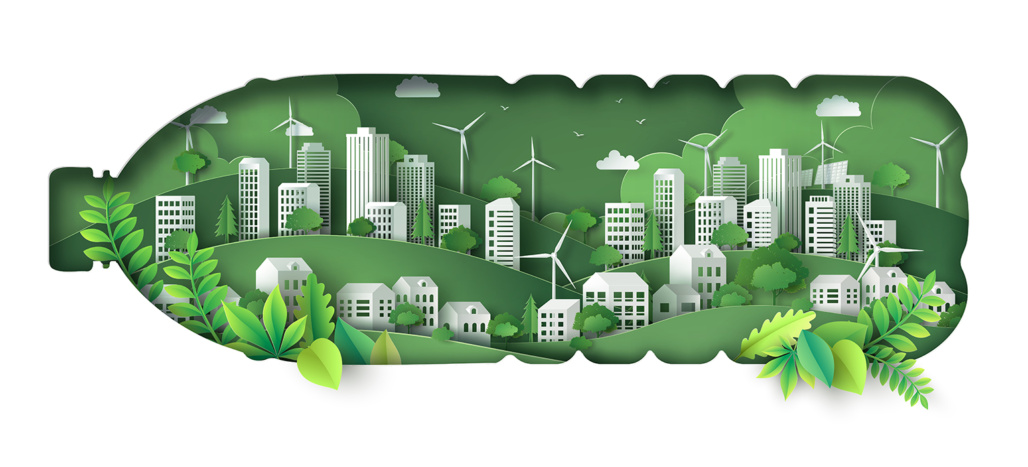Deepa Alex Mora
Member
Macau Institute for Corporate Social Responsibility in Greater China (MICSRGC)
As Macau gears up to welcome over 39 million visitors in 2024, its thriving tourism industry faces a hidden challenge: a mounting waste problem. In 2019 alone, the city generated a staggering 550,249 tons of waste. But what if this wasn’t just a burden, but a hidden treasure trove waiting to be unlocked? Waste upcycling presents a significant opportunity for Macau to redefine its commitment to sustainability and innovation, transforming its waste into valuable resources and creating significant economic opportunities, while aligning with global initiatives like the United Nations’ Sustainable Development Goals (SDGs) and promoting a circular economy.
Waste Upcycling: Breathing New Life into Discarded Materials
Imagine a future where the 37% of Macau’s waste stream, composed of food scraps, is reborn as clean energy, bioplastic, or high-value bioproducts, while textile waste from hotels is upcycled into stylish, eco-friendly fashion accessories and home decor, reflecting the unique blend of cultures that define Macau. Discarded playing cards from casinos, emblematic of Macau’s vibrancy, can be reinvented as sustainable construction materials, and used cooking oil from restaurants is transformed into biodiesel for energy, or biosurfactant for use in eco-friendly cleaning solutions. This isn’t science fiction; it’s the transformative power of upcycling, turning waste into valuable resources and minimizing environmental impact, all while showcasing Macau’s creativity and innovation.
Cities like Amsterdam and San Francisco are paving the way for a circular economy. Boasting a staggering 53% waste diversion rate, Amsterdam utilizes innovative sorting and upcycling facilities that breathe new life into everyday waste, transforming it into valuable resources like bioplastics, textiles, and even furniture. San Francisco takes a different but equally effective approach, actively promoting upcycling through collaborations with local artists, designers, and businesses. With its unique infrastructure and unwavering focus on innovation, Macau has the potential to become a frontrunner in waste upcycling innovation.

Macau’s Compact Catalyst: A Springboard for Upcycling Innovation
Unlike sprawling cities with vast landfills or land-rich areas that rely on composting, Macau faces a unique challenge. Its limited land area restricts traditional waste management methods like large-scale composting. But here’s the beauty: this very limitation presents a remarkable opportunity to become a global leader in waste upcycling innovation. With the waste export ban to mainland China and the anticipated tourist surge, Macau needs creative solutions.
Macau’s compactness presents a unique catalyst for upcycling. Envision waste traveling short distances for innovative processing, minimizing transportation emissions and maximizing resource recovery. Macau’s concentrated infrastructure can foster close collaboration between stakeholders, accelerating upcycling research, development, and implementation. This compact environment becomes a breeding ground for ground-breaking solutions, propelling Macau to the forefront of the global upcycling movement.
Macau’s government holds the key to unlocking the full potential of its waste stream through accelerated upcycling innovation. Grant programs dedicated to upcycling research and development would be a powerful driver. Imagine research grants fueling projects that transform Macau’s abundant seafood waste into bioplastics, offering a sustainable alternative to traditional packaging, or the development of innovative construction materials made from single-use plastic waste. Cutting-edge advancements in biotechnology, synthetic biology, material engineering, artificial intelligence, and sustainable technologies hold immense promise for upcycling waste into valuable resources.
Biotechnology and synthetic biology, in particular, offer promising avenues for transforming waste into biofuels, biodegradable packaging, value-added consumer products, eco-friendly construction materials, and even precious metals from electronic waste. By harnessing the power of microorganisms and engineering biological systems, we unlock the potential of waste, turning it from a burden into a source of innovation and value creation.
Macau’s universities, with their emphasis on science, technology, engineering, and math (STEM) subjects, provide a strong foundation for upcycling innovation. This focus equips graduates with the skills to develop solutions for transforming waste into valuable resources. Picture bustling labs where young minds develop methods to transform used cooking oils into biofuels, or crafting biodegradable IoT sensors from upcycled materials! Entrepreneurs are the catalysts, fostering economic diversification by developing innovative “waste-to-product” solutions.
Collaboration between all stakeholders creates a robust ecosystem for upcycling innovation. By embracing upcycling, Macau can not only tackle its waste challenge but also create a thriving green economy, positioning itself as a sustainable tourism leader on the world stage.

A Sustainable Legacy: Integrating CSR and Upcycling for Macau’s Future
Upcycling creates a ripple effect of positive benefits for Macau. Upcycling initiatives naturally raise public awareness about responsible waste management, contributing to a cultural shift towards a more sustainable future. When young people are involved in upcycling projects, they gain valuable skills for building a greener future. Upcycling fosters an environment where creativity flourishes, empowering entrepreneurs to develop innovative “waste-to-product” solutions and build sustainable businesses.
Many Integrated Resorts (IRs) in Macau have already taken significant steps towards responsible waste management, focusing on practices such as reduction and reuse, which underscore their ongoing commitment to Corporate Social Responsibility (CSR). However, as they continue to pursue sustainability goals, there’s an exciting opportunity for these resorts to further distinguish themselves as leaders in CSR through upcycling. Consider the possibilities: discarded carpets from routine refurbishments, cardboard packaging, and even playing cards repurposed into innovative construction elements for future projects. By embracing upcycling initiatives, these resorts can significantly contribute to Macau’s reputation for sustainable tourism practices. Such initiatives are likely to resonate with environmentally conscious travelers seeking destinations that prioritize sustainability. Moreover, upcycling initiatives addressing the IRs’ specific waste challenges hold immense potential for uncovering innovative solutions, benefiting both the resorts and the broader goal of advancing sustainability across the region.
Macau’s journey towards a sustainable future hinges on innovation, collaboration, and a commitment to environmental responsibility. As the city embarks on this path, a fascinating question emerges: What potential lies hidden within Macau’s waste streams? Upcycling initiatives offer a glimpse into a future where these discarded materials are no longer a burden, but a source of endless possibilities.

